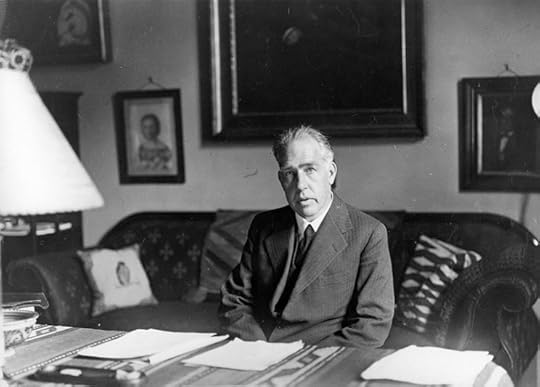A new philosophy of science
One of the central concepts in chemistry consists in the electronic configuration of atoms. This is equally true of chemical education as it is in professional chemistry and research. If one knows how the electrons in an atom are arranged, especially in the outermost shells, one immediately understands many properties of an atom, such as how it bonds and it’s position in the periodic table. I have spent the past couple of years looking closely at the historical development of this concept as it unfolded at the start of the 20th century.
What I have found has led me to propose a new view for how science develops, a philosophy of science if you will, in the grand tradition of attempting to explain what science really is. I am well aware that such projects have fallen out of fashion since the ingenious, but ultimately flawed, attempts by the likes of Popper, Kuhn, and Lakatos in the 1960s and 70s. But I cannot resist this temptation since I think I may have found something that is paradoxically obvious and original at the same time.
The more one looks at how electronic configurations developed the more one is struck by the gradual, piecemeal and at times almost random development of ideas by various individuals, many of whose names are completely unknown today even among experts. Such a gradualist view flies in the face of the Kuhnian notion whereby science develops in a revolutionary fashion. It goes against the view, fostered in most accounts, of a few heroic characters who should be given most of the credit, like Lewis, Bohr, or Pauli.
If one looks at the work of the mathematical physicist John Nicholson, one finds the idea of the quantization of electron angular momentum that Bohr seized upon and made his own in his 1913 model of the atom and his own electronic configurations of atoms. In looking at the work of the English chemist Charles Bury, one finds the first realization that electron shells do not always fill sequentially. Starting with potassium and calcium, a new shell is initiated before a previous one is completely filled, an idea that is especially crucial for understanding the chemistry of the subsequent transition elements, starting with the element scandium.
 Niels Bohr. Image Credit: Public Domain via Wikimedia Commons.
Niels Bohr. Image Credit: Public Domain via Wikimedia Commons. This was followed by the work of the then Cambridge University graduate student, Edmund Stoner, who was the first to use the third quantum number to explain that electron shells were not as evenly populated as Bohr had first believed. Instead of a second shell consisting of two groups of four electrons that Bohr favored, Stoner proposed two groups of two and six electrons respectively. The Birmingham University chemist John Main Smith independently published this conclusion at about the same time. But who has ever heard of Main Smith? The steps taken by these almost completely unknown scientists catalyzed the work of Wolfgang Pauli when he proposed a fourth quantum number and his famous Exclusion Principle.
What I am groping towards, more broadly, is a view of an organic development of science as a body-scientific that is oblivious of who did what when. Everybody contributes to the gradual evolution of science in this view. Nobody can even be said to be right or wrong. I take the evolutionary metaphor quite literally. Just as organic evolution has no purpose, so I believe it is true of science. Just as the evolution of any particular biological variation cannot be said to be right or wrong, so I believe is true of scientific ideas, such as whether electron shells are evenly populated or not. If the idea is suited to the extant scientific milieu it survives and leads others to capitalize on any aspect of the idea that might turn out to be useful.
Contrary to our most cherished views that science is the product of brilliant intellects and that logic and rationality are everything, I propose a more prosaic view of a great deal of stumbling around in the dark and sheer trial and error. Of course such a view will not be popular with analytical philosophers, in particular, who still cling to the idea that the analysis of logic and language holds the key to understanding the nature of science. I see it more like a craft-like activity inching forward one small step at a time. Language and logic do play a huge role in science but in what I take to be a literally superficial sense. The real urge to innovate scientifically comes from deeper parts of the psyche, while logic and rational thought only appear at a later stage to tidy things up.
In recent years many scholars who write about science have accepted limitations of language and rationality, but the same authors have generally tended to concentrate instead on the social context of discoveries. This has produced the notorious Science Wars that so polarized the intellectual world at the close of the 20th century. What I am trying to do is to remain focused on the grubby scientific details of concepts like electron arrangements in atoms, while still taking an evolutionary view which tracks what actually takes place in the history of science.
Feature Image: Test tubes by PublicDomainPictures. CC0 via Pixabay.
The post A new philosophy of science appeared first on OUPblog.

Oxford University Press's Blog
- Oxford University Press's profile
- 238 followers



